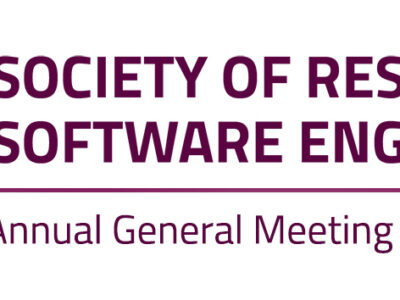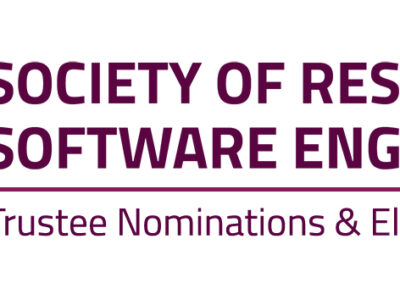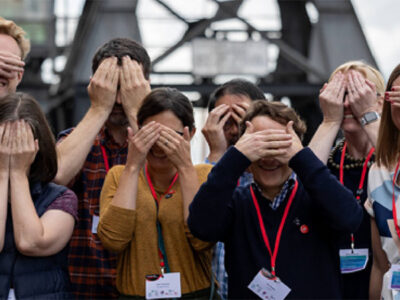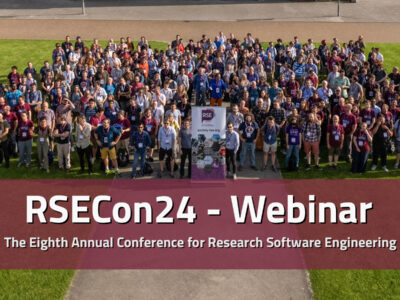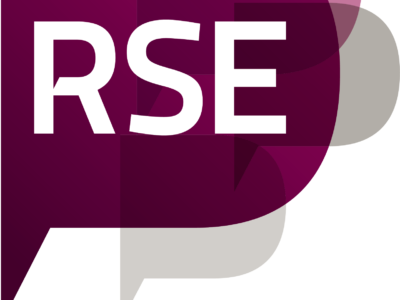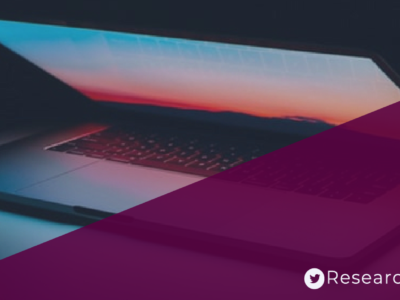
Newsletter – January 2021
Welcome to the January newsletter from The Society of Research Software Engineering! Our monthly newsletter will announce new Society initiatives, gather RSE news, events, blogs, papers and anything else interesting and relevant together in one place. If you would like to add an item or suggest a new section to the next newsletter, submit it via this short form or get in touch with Claire Wyatt, RSE Community Manager.
Newsletter Contents:
>Society Update
>Announcements
>Events
>Podcasts
>Papers
>Blog posts
>Community info
>RSE Worldwide
Society Update
The trustees had our usual monthly meeting on the 8th January and continue to work hard on various initiatives. Starting this month, we will provide updates from the trustees (below) to give you more detail on the types of things we are working on.
Trustee Updates
Paul Richmond, President: I (and the Governance group, especially Claire and Teri) have been busy conducting a governance review to ensure that we can identify areas where the society can improve its governance process. It has been a busy month of moving other things forwards and I have written a number of documents which are being put forward to trustee vote shortly. These include:
1) A strategy for the Society which sets out how we would like to progress and support our community and members over the next 12 months.
2) An events and initiatives policy which was originally drafted pre-covid but has been extended to support online events.
3) A corporate engagement policy to make sure that our corporate members interact with our members responsibly.
4) Planning for a careers event which we are likely to postpone until Easter to ensure that it remains accessible to those with caring responsibilities.
5) An upcoming blog post on the importance of the RSE community engaging in peer review.
Claire Wyatt, Vice President: I work on several subgroups and working groups with other trustees but this month I would like to update the community on one of the subgroups, the Conference & Events. Three trustees, myself, Fouzhan and Mozhgan meet every two weeks to discuss the annual RSE conference and any other events that we’d like to make happen for the RSE Community. This month we continued to focus on the annual RSE conference discussing in-person vs virtual, the potential format, length and dates. We will send out a ‘Save the Date’ as soon as we have some firm dates in place and at the moment, we are leaning more towards a virtual conference. If you have any suggestions or requests for additional events, please do get in touch with us [email protected].
Matt Williams, Treasurer and Kirsty Pringle, Vice Treasurer: The finance team has been working on formalising our processes and are working with our accountants to migrate to a professional software accounting platform. This will ease the work required to produce our annual report and give us better oversight on our finances.
Ian Cottam, Trustee, Membership Team: Early in this new year, the membership group will be looking at a programme to improve benefits to members. This will mainly, but not exclusively, involve leveraging support from our corporate members and friends. However, no need to wait, if you are not yet a paid-up (£20 per annum) member, why not join now!
Marion Weinzierl, Communications Team, Lead of the academic and embedded RSEs working group: At the end of 2020, we closed our old mailing list, and are happy to see that most subscribers seem to have moved over to the new mailing list (you can also join as a member). We are in the process of reviewing all of our communication channels and putting together a communications plan for 2021.
Following discussions on this topic among all trustees, we have formed a new working group on embedded and academic RSEs. We aim to understand better the challenges and needs of these groups of RSEs, and to identify how we can better support them. Please feel free to contact us any time if you have ideas, complaints, remarks or opinions on this matter.
Ania Brown, Lead of the mentoring working group: The mentoring subgroup was formed to design and implement a central mentoring scheme for RSE Society members. While some RSEs may currently have access to general mentoring schemes at their home institutions, this is not guaranteed, and it is important to us that there is a scheme available to all our members that is tailored towards RSE needs. Having determined that it may be useful to employ an external company to help to design and manage the scheme, particularly in the area of providing training for mentors, our current priority is to find and evaluate potential candidates. If you have any recommendations for individuals or organisations that design and manage mentoring schemes for other organisations, please get in touch at [email protected]. Ideally we are looking for organisations that have worked with universities and charities before.
James Graham, Web Team: Following requests from the community, we have also begun building a collection of links to useful RSE resources on our website. This collection can be found at here. We rely on community suggestions for the content, so if you have any content you would like to add, please use the form linked from that page.
Introducing the International Council of RSE Associations
In January 2021, the International Council of RSE Associations was founded as a forum to communicate and formally meet to ensure cohesion between national associations and to provide a platform for open discussion around international issues and affairs. This enables collective decision making, collaboration among national associations, peer support and international community building. From the Society, the President Paul Richmond and the Vice-President (who is also the RSE Community Manager), Claire Wyatt sits on this international council. Read all about the aims. It currently includes the following associations:
- be-RSE (Belgium)
- de-RSE (Germany)
- NL-RSE (Netherlands)
- Nordic RSE (Nordics and Baltics)
- RSE-AUNZ (Australia and New Zealand)
- The Society of RSE (UK)
- US-RSE (USA)
Code for Thought Podcast
We recommend listening to a brand new podcast “Code for Thought”, on “software, engineering, research and anything in between”, but then we would wouldn’t we?! Considering that the Society is supporting Peter Schmidt, the creator of this new podcast, with a small grant. The first guests are the Society’s Vice President and RSE Community Manager Claire Wyatt and Prof. Simon Hettrick, Deputy Director from the SSI giving some background to the RSE movement. The second episode is about the future of the RSE Fellowship programme with Richard Gunn and Sarah King from the EPSRC. Find the podcast on Apple, Spotify, Google and others. Happy Listening!
Membership and Mailing list
Thanks and welcome to all who have joined the Society in the last month; and, similarly, for those who have moved their mailing list entry over to the Society membership/mailing list from the old mailing list (everyone@rse..), which has now closed. New members of both the Society and the mailing list are always welcome!
Membership of the Society
We currently have 393 paid-up members with several thousand people forming the online community on the RSE Slack space. Sign up for membership! There are three options for payment: credit card, debit card or direct debit.
Currently the members benefits are:
- Support the work of the Society to further research software engineering
- Eligible to apply for any future opportunities for Society funding
- Opportunity for early registration to the Society annual conference
- Opportunity for early registration to any future Society’s professional and networking events
- Eligible to vote in Society decisions such as electing trustees or changing the constitution
- Eligible to stand for election as a trustee
- Eligible to be a volunteer or be nominated for working groups or committees that the trustees may establish
RSE Slack space and channels
There are 120 public slack channels in the RSE space that you can join so feel free to explore by clicking on the + on the left hand side, next to ‘Channels’ and then ‘Browse Channels’. If you joined the slack space recently, you were automatically added to these channels:- #general, #random, #introductions– where we can all get to know each other more and hear about you and your work, #jobs – where you can post and see new vacancies and #events– to read and post about any relevant interesting events, and the #training channel. If you’ve been here a while you might not be in those channels so use the + to join them and browse all the other channels available. We’d like to encourage everyone to introduce themselves in the #introductions channel…Connect to the RSE Community by joining the RSE Slack https://society-rse.org/about/contact/
RSE Group Leaders Meetings – going online
If you’d like to host/chair the next RSE group leaders’ meeting in the Spring, get in touch with Claire. The Society supports meetings for RSE Leaders, which are normally in person twice a year, but now that we are all online we are trialling a move to having more frequent meetings. Both the private slack channel and the meetings are for leaders to share and discuss best practice confidentially. No matter how small or large the group, the challenges are usually quite similar so this leaders’ network discusses on slack and meets in person (now online) the solutions that work, present interesting projects, share best practice etc. The meetings are informal with no note taking and all conversations are strictly confidential. If you’d like to join the leaders’ slack channel and/or attend the next meeting, please get in touch with Claire Wyatt. There is also a mailing list but this is mostly used to fix the meetings. Discussions are held on slack so as not to clutter inboxes.
Keep up to date – You can keep up to date with trustee meetings as we have shared a summary of Society monthly trustee meetings including the decision log.
RSE Vacancies – You can post an RSE role or a role supporting RSEs to the vacancy page on the Society website via a form.
Announcements
Collaborations Workshop 2021 (CW21) will take place online from Tuesday, 30 March to Thursday, 1 April 2021 and registration is now open! The Software Sustainability Institute’s Collaborations Workshop series brings together researchers, developers, innovators, managers, funders, publishers, policy makers, leaders and educators to explore best practices and the future of research software. The themes of the CW21 keynote presentations, discussion groups, mini-workshops, collaborative ideas, and hack day will be around the following areas of research software: FAIR Research Software, Diversity & Inclusion and Software Sustainability. To find out more information, see the agenda and view the call for submissions, please visit the CW21 website.
Financial assistance is available for CW21. Examples of what can be supported include the cost of registration, reliable internet/data usage, a good quality headset (for example, if you are working in a shared space), and/or childminding/carer costs.
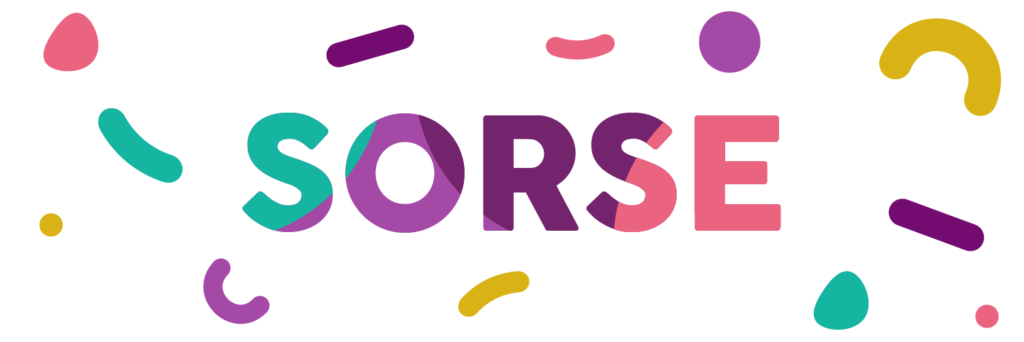
A Series of Online Research Software Events – pronounced ‘source’ is an international answer to the COVID-19-induced cancellation of many national RSE conferences. An international committee has provided an opportunity for RSEs to develop and grow their skills, build new collaborations and engage with RSEs worldwide. This is an open call to all RSEs and anyone involved with research software worldwide, to propose a talk, a workshop, a software demo, a panel or discussion, blog post or poster. After each event, SORSE will provide an opportunity for networking and informal discussion with other participants in small groups. Our programme is looking great with all sorts of events filling January and February already. The Call for Contributions form will remain open continuously until 31 January 2021 following which all contributions received will be sent for review by the Programme Committee.
The #SORSE YouTube channel has had some new recordings added, so if you’ve missed any of our sessions so far, check it out!
Applications for SSI Fellowship are now open: The deadline is 23:59 GMT on Sunday 7 February 2021. The Software Sustainbility Institute’s Fellowship Programme provides funding for researchers who want to improve how research software is used in their domains and/or area of work. Each Fellow is given £3,000 to spend over fifteen months. This funding can be used for any activities that meet both the Fellow’s and the Institute’s goals, such as travel to workshops, running training events such as software carpentry, data carpentry or library carpentry, nurturing or contributing to communities of practice, collaborating with other Fellows, or for any other activities that relate to computational practice or policy. In light of the ongoing situation around COVID-19, we encourage applicants to consider that travel and in-person events may not always be feasible, and we particularly welcome plans with online-based activities. The main goals of the programme are to improve computational practice and to promote this improvement across all disciplines. We encourage our Fellows to use software sustainability practices themselves and to be ambassadors of good practice in their own domains. Our Fellows have come from a wide variety of backgrounds, experience and career stages. What they have in common is a passion for their area, the ability to communicate their ideas effectively, and a real interest in the role of software in research.
Celebrating all research outputs! The hidden REF is a competition that recognises all research outputs and every role that makes research possible. Enter the competition!
The committee has crowd-sourced submission categories to construct a broad set of categories that they hope will recognise everyone who contributes to the success of research. Submissions opened on 14 December 2020. They will be reviewed by panels drawn from across the research community and winners will be announced in April 2021. If you would like to enter your work, or nominate a person who has been vital to your research, please complete a submission! The more submissions it receives, the more evidence we have to campaign for broadening the research community’s definition of what it means to contribute to research. Find out more about the hidden REF. Q&A – unpacking the secrets of the hidden REF. Note that, in response to the latest UK lockdown, the Hidden REF submission deadline has been extended to 14th May 2021.
The call for papers of our 1st International Workshop on the Body of Knowledge for Software Sustainability (BoKSS’21 – @ICSEconf) is now open.
Applications are invited for the OpenScience mentoring and training programme. OLS is a 16-week mentoring and training programme that upskills individuals in open and reproducible research and empowers them to become open science ambassadors in their communities.
The University of Birmingham’s RSG 2020 report is now available created by Ed Edmondson and his team.
The Wellcome Research Culture Townhalls Report can be found here.
The Research Software Engineer Stories podcast wants to ask YOU what you’d like to see for episodes or guests. Please take this short survey to let us know what you think!
The OECD (Organisation for Economic Cooperation and Development) adopted a revised “Council Recommendation on Access to Research Data from Public Funding” last week. This new version “expands the scope to cover not only research data, but also related metadata, as well as bespoke algorithms, workflows, models, and software (including code), which are essential for their interpretation.” Software is included for the first time since the instrument came into force in 2006.
Events
GPU Hackathons in Europe 2021
The GPU Hackathon program is designed to help scientists, researchers and developers to accelerate and optimize their applications on GPUs. The hackathons are four day intensive hands-on events designed to help computational scientists port their applications to GPUs using libraries, OpenACC, CUDA and other tools by pairing participants with dedicated mentors experienced in GPU programming and development.
Domain scientists are paired with experienced GPU mentors to learn the critical accelerated and parallel computing skills needed by the scientific community.
Today, more than 1800 domain experts from premier universities, research centers, and high performance computing centers around the world have been trained and over 400 scientific applications have been ported in part or completely to GPUs.
Throughout this year there will be multiple GPU Hackathons taking place in Europe. Don’t miss your chance to attend one these GPU Hackathons and work with experts to get the latest updates on programming models, best practices and tools for using and optimizing your codes on GPU.
| Site | Dates | Submission Deadline |
| EPCC | April 19,26-28 | Feb 19th |
| IDRIS | May 17,25-27 | March 17th |
| CINECA | June 14,21-23 | April 14th |
| CSCS | Sep 20,28-30 | July 13th |
| ENCCS | Dec 7,14-16 | Oct 6th |
The full schedule is available at www.gpuhackathons.org/events
February
FOSDEM HPC, Big Data, and Data Science Devroom
BioScience and Machine Learning coffee morning on Friday, 12 February 2021.
HER+Data MCR (“Her plus Data Manchester”) is a community working to connect, inspire, support and empower the NW UK’s Women in Data! We meet on the 2nd Thursday of each month.
The Software Sustainability Institute runs free online Research Software Camps twice a year over the course of two weeks. Each Camp will focus on introducing and exploring a topic around research software and thus kickstart discussions among various research communities. The first online Research Software Camp on Research Accessibility will take place from 22 February to 5 March 2021.
March
Upcoming GPU Hackathons can found here.
It’s time to build a better research culture – one that is creative, inclusive and honest. Our free online festival will bring together the research community to take action and help reimagine research. Reimagine Research Culture Festival, March 22-26.
Interested in developing a sustainability strategy for your science gateway? The next “Jumpstart Your Sustainability Plan” mini-course will be offered online Monday through Wednesday, March 1-3, 2021, and is FREE and open to all.
June
If you work at the interface of software engineering and computational science, consider submitting a paper to the next International Workshop on Software Engineering for Computational Science, which will take place as part of the International Conference on Computational Science (ICCS), 16-18 June, 2021.
The deadline for submissions will continuously be aligned with the deadlines of the main conference, currently we expect a due date in late January.
Podcasts
New episodes of the Code for Thought podcast:
New episodes of the RSE Stories podcast:
- Greg Becker – What does Research Software Engineering mean at a National Lab, and how is rock climbing like programming?
- Tania Allard is much more than a research software engineer, fostering community growth, and excitement for open source.
- Olivia Guest is a computational cognitive modeler. She is also a prolific publisher and blogger.
- As former president of the Society of Research Software Engineering Alys Brett has a unique insight into the RSE movement and where it’s heading.
Papers
The papers in the HICSS software survivability track:
- Sustainability in the Tapis Framework
- Research Software Sustainability: Lessons Learned at NCSA
- A Behavioral Approach to Understanding the Git Experience
SSI Fellows produce guidance to enhance accessibility of online calls.
Software must be recognised as an important output of scholarly research: a position paper arguing for the recognition of software in research.
Ten simple rules for writing Dockerfiles for reproducible data science: A new article in the “Ten Simple Rules” series in the journal PLOS Computational Biology features guidelines for researchers and research software engineers on using Dockerfiles for reproducible computational workflows. The authors hope this paper is useful for RSEs both for their own work as well as in supporting and educating others on using containerisation for better research.
Blog Posts
The Research Software Engineers International Blog.
Ten computer codes that transformed science.
Software and repositories in the context of FAIR.
No Fortran? No data science in R and Python!
Brunel’s network – how lockdown changed a historical research project.
A farewell to RSEs: reflecting on our progress and remaining barriers by SSI Deputy Director Simon Hettrick. “You may think that the main beneficiary of this progress would be the RSEs themselves, but it is not. The main benefit of a recognised and supported community of RSEs will be felt by the entire research community and their much advanced ability to conduct valuable research.”
Community info
Reminding you about..
RSEs in the UK now have the opportunity to apply for the new Open Plus Fellowships that are funded by EPSRC. The Open refers to the fellowship being open to all who work in academia e.g. RSE and technicians while the Plus refers to being able to use some of your time for community activities. The RSE Fellowships will still continue but in time will migrate to these.
UKRI are building a new funding service that will eventually replace the existing Je-S system. If you have any experience of applying for funding, or are likely to apply for or assess funding in the future you can join the effort to help design the service in a way that will meet your needs. If you would like to input into the design of the new service please provide your details here.
The DiversIT Charter is CEPIS’ flagship initiative aimed at reducing gender disparity in IT roles. It is a roadmap which moves through three levels of attainment: Bronze, Silver and Gold. Each level has a focus on attraction and retention, asking applicants to showcase their initiatives and policies for increasing gender diversity in ICT professions.
REF Real Time Review: Survey to assess views of the Research Excellence Framework (REF) among researchers – UKRI has commissioned RAND Europe to conduct a real-time evaluation of REF 2021 on behalf of the four UK funding bodies. The study aims to assess attitudes, perspectives and behaviours towards the REF 2021 across the sector, and explore how REF policies and changes are embedded in the way submissions are prepared and delivered. As part of this study, they are conducting a survey of research staff across UK higher education institutions. They hope you will be happy to support the study, and contribute to the evidence base that will help assess REF policy and inform its development in the future.
A new ‘Resources‘ database has been set up on the Society website which will hold the links to all the static useful items that have featured here under Community info. Help us to fill the resources database by submitting an item to the database.
Research Software Hour…Hosted by members of the Nordic-RSE community, this continues weekly on Twitch. Research Software Hour is an online stream/show about scientific computing and research software. It is designed to provide the skills typically picked up via informal networks; each week, they do some combination of exploring new tools, analyzing and improving someone’s research code, and discussion. Watchers can take part and contribute code to us which they analyze and discuss on stream. They broadcast on Twitch Thursdays at 20:30 Oslo time / 21:30 Helsinki time.
Imperial College Newsletter…The Imperial College RSE Team have been producing a newsletter for a while now to their institute community. They include a ‘Research Software of the month’, links to blog posts and dates for your diary.
Better Scientific Software – a blog with relevant articles.
Microsoft Research Technology Professionals Community Launch
RSE Worldwide
Awareness of the RSE role and the RSE community is growing around the world with new national groups being created all the time. In this section, we introduce these groups and raise awareness of their success. The Society supports new groups and collaborates with representatives from them on various initiatives (papers, international workshops).
In January 2021, the International Council of RSE Associations was founded as a forum to communicate and formally meet to ensure cohesion between associations and to provide a platform for open discussion around international issues and affairs.
(In alphabetical order).
AU/NZ RSE Group
Belgium Research Software Engineers Community
With almost 100 participants from a variety of research institutes and universities from Belgium, Europe and beyond, the recently formed BE-RSE community hosted a successful ‘Research Software Developers Day’ on the 3rd December 2020. As the first conference ran online, they are happy to keep sharing the presentations with everyone via their website. You can look back on a wonderful first edition of their Research Software Developers Day conference with the programme and recordings of the presentations on their website be-rse.org/rsdd2020.
CANARIE
CANARIE is the organising body for the RSE movement in Canada.
de RSE
The German Reproducibility Network has recently been founded. We aim to increase trustworthiness and transparency of scientific research.
NL RSE
New meet-ups are scheduled for NL RSE. Interested in proposing a workshop, talk, or some other contribution? Get in touch!
Nordic RSE
The Nordic-RSE conference will (hopefully) be held 27-28 May 2021 in Stockholm. Of course, this is subject to the global situation at that time. The conference will be modeled on other global RSE conferences (for example, see the schedule of RSEConUK 2019).
US RSE
In December, the US-RSE Association held its first Annual General Meeting as well as its first formal community elections for Steering Committee members.
Collect your gold star here if you’ve read all the way to the end!

